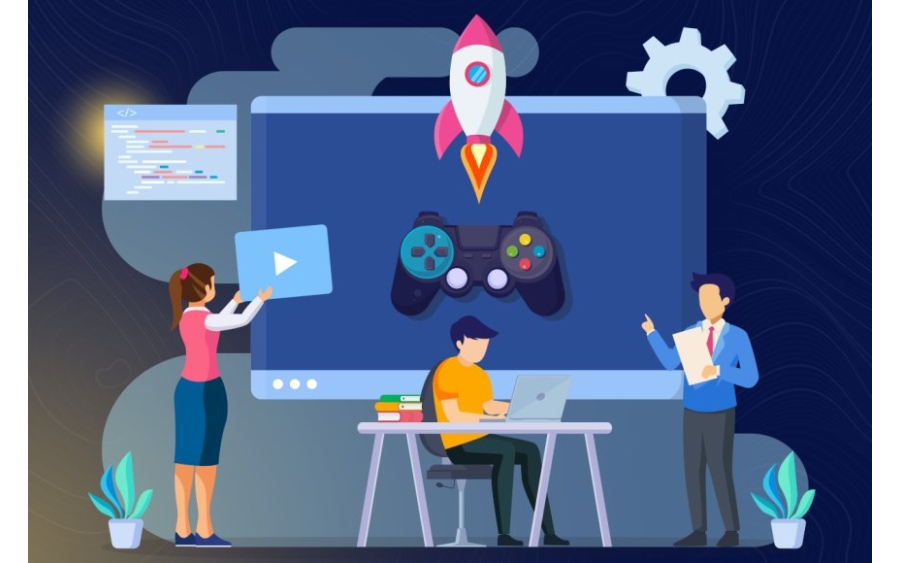With its technical improvements, inclusive features, and deeper gameplay systems, NBA 2K26 sets a new standard for basketball gaming. Whether you’re l...
See more

Games for Education: The Role of Digital Games in the Learning Process
In today’s world, where technology leaves a deep mark on every aspect of our lives, the field of education is no exception. Digital games, in particular, have emerged as powerful tools that reshape the way students learn. Far from being only a source of entertainment, games also help students develop critical skills such as knowledge acquisition, problem-solving, and collaboration. But how exactly do digital games influence the learning process? Let’s dive into the answer.
How Digital Games Contribute to Learning
1. Boost Motivation and Engagement
One of the greatest advantages of digital games is their ability to enhance motivation by offering constant rewards and feedback. This makes learning, even in challenging subjects, more fun and approachable. Achieving success in a game reinforces students’ interest in learning and encourages them to put in more effort. For example, solving problems in a math-based game can help a student grasp the subject more deeply.
2. Support Active Learning
Unlike passive forms of learning, games allow students to actively participate in the process. Through digital games, learners reinforce their knowledge by experiencing and experimenting. This type of experiential learning is often more effective than traditional lectures, as students discover information through trial, error, and problem-solving.
3. Develop Problem-Solving and Critical Thinking
Many digital games are designed to challenge players with complex problems. Overcoming obstacles requires strategic thinking, which in turn sharpens students’ analytical skills. Games also nurture critical thinking and sound decision-making abilities, skills that are valuable both inside and outside the classroom.
4. Encourage Collaboration and Teamwork
A large number of digital games require players to work together. This promotes effective communication and teamwork skills among students. Since collaboration is a vital skill in real life as well, the ability to cooperate within a game can easily translate into real-world contexts.
Types of Educational Games
Digital games can be integrated into education in various ways. Here are some of the most common types:
1. Simulation Games
Simulation games allow students to experience real-life situations in a virtual environment. For example, a city management simulation can teach students about economics, governance, and strategy. These games are particularly effective for building complex problem-solving skills.
2. Educational Video Games
These games are specifically designed to teach a particular subject. They are especially useful for core subjects such as math, grammar, and science. Tasks, challenges, and rewards within the game make learning fun and engaging.
3. Role-Playing Games (RPGs)
Role-playing games immerse students in stories by allowing them to embody different characters. They encourage empathy, creative thinking, and decision-making. RPGs can also be used to explore historical events or scientific theories in an interactive way.
The Impact of Digital Games in Education
Digital games can create positive effects at all stages of education. However, as with any tool, proper usage is key.
Positive Aspects
Negative Aspects
The Future of Digital Games in Education
The future of education will likely see digital games play an even greater role. Emerging technologies such as artificial intelligence (AI), virtual reality (VR), and augmented reality (AR) are making games more interactive than ever. Imagine students learning in virtual classrooms where real-world scenarios are simulated in realistic ways. Moreover, games will increasingly provide personalized learning experiences, enabling students to progress at their own pace.
Conclusion
Digital games have gone beyond being simple sources of fun; they are now valuable educational tools. Through games, students not only acquire knowledge but also develop essential skills such as confidence, motivation, and critical thinking. By making learning more engaging and effective, games hold the potential to shape the future of education. And as technology continues to evolve, their role in the classroom will only grow stronger.

With its technical improvements, inclusive features, and deeper gameplay systems, NBA 2K26 sets a new standard for basketball gaming. Whether you’re l...
See more

Town to City, developed by Galaxy Grove and published by Kwalee, is a cozy city builder set in a 19th-century Mediterranean theme. It entered Early Ac...
See more